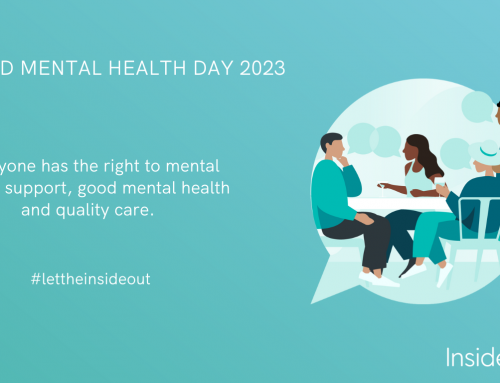“Don’t criticize what you don’t understand, son. You never walked in that man’s shoes.” – Elvis Presley, American singer
Water off a duck’s back. What does this idiom mean? Cambridge Dictionary explained that if criticisms and insults are like water off a duck’s back to you, these hurtful words will have no effect on you. Wouldn’t that be great? If only we have a secret tool to insulate ourselves from all the hurt and pain caused by the criticisms we receive. Imagine the peace and serenity we will enjoy!
The reality is that we will always receive criticisms. People have a tendency to spot what is lacking in us and often point it out to us without thinking of the impact of their words. Some even believe that by criticising us, they are actually helping us because if we do not know our shortcomings, how are we to improve?
My elder daughter was sharing about what one of her classmates said to her during her physical education class last week. They were having a friendly skipping competition and her classmate criticised her for not being skilful at “double dutch” – that’s jumping in between 2 rotating skipping ropes in opposite directions simultaneously. She told my daughter that if she couldn’t do that, they will lose and they didn’t want her in the team. My daughter was obviously upset by this statement and her classmate’s words affected her performance that day. What happened with that competition? They didn’t win but from what I understood from my daughter, it wasn’t just due to her not doing the double dutch move properly but that another team was more skilful. Nevertheless, this episode left a bitter aftertaste and my daughter now keeps a distance from her classmate
I’m sure we have all experienced similar instances in our lives. The unduly harsh comments dished out to us by our manager when we didn’t deliver the assignment as per his expectations. The snide remarks said in passing by a family member which seemed uncalled for to us. The hurtful words said in the heat of the moment when our spouse was angry with us. The impact of these words lasts. They affect the way we view these relationships if we don’t do something proactive about it.
“Often those that criticize others reveal what he himself lacks.” – Shannon L. Alder, American author
So, what can we do?
-
Do nothing
We decide not to do anything, telling ourselves that we cannot change the person and just accept what was said. However, this also means that the relationship remains the same and the person may not even be aware that we were hurt by his/her words. If we do not deal with our unresolved emotions, we will eventually become resentful and may even bear a grudge against that person.
-
Walk away
We decide to end the relationship. Cease all communication with the person and distance ourselves. That is what my daughter is attempting to do with her classmate although practically, it is not workable given that they are still classmates. We may not be able to walk away more so when the relationship in question is with a family member or a close friend. We may also lose out on the gifts and joys of that relationship if we give up on it simply because we are hurt.
-
Take a step back
You realise that you don’t want the relationship to remain at status quo and you can’t walk away from it either. So, what do you do? You take a step back to re-evaluate the relationship. What can you do that is within your control to improve the relationship? If the person has a tendency of criticising you harshly and is not open to listen to your perspective, consider if you want to improve this relationship or decide to create boundaries with this person?
If you wish to improve this relationship, firstly, think about how you can mend your hurt feelings and to deal with any unresolved emotions. Then, consider the best way to communicate your hurt feelings to this person. Avoid coming from a place of blame. Express yourself by using “I” words e.g. “When you said ______, I felt _________.” Ask the person for the reason and intention behind those hurtful words. Be prepared that the person may not be willing to communicate openly. If you reach a stone wall in communicating with this person, you will then have to decide if you have done all that you can to improve the relationship.
If you decide to create boundaries with this person, articulate clearly in your mind the behaviours you can accept and tolerate and those that are not acceptable. If possible, communicate your boundaries with this person for mutual understanding. You may also consider taking some time apart if the circumstances allow it.
When you have more time to reflect, look at this person from a strength’s perspective. What are his/her strengths that you appreciate and admire? Consider whether the hurtful words said were part of a pattern or a one-off incident. Are you judging the situation or are you able to look at it objectively? How important is this relationship to you?
We are human and we have the tendency to hurt those closest to us. The important thing is to understand your needs, the other person’s needs and the common ground between the two which will allow the relationship to thrive. Remember to be kind to yourself as well as to the other person.
I leave you with this quote from Bernard Baruch, an American financier: “One of the secrets of a long and fruitful life is to forgive everybody everything every night before going to bed.”
Is the relationship worth salvaging despite the hurtful words said? If yes, will you be willing to forgive?
Author: Jenny Toh, Life Coach
Insta: @lettheinsideout






